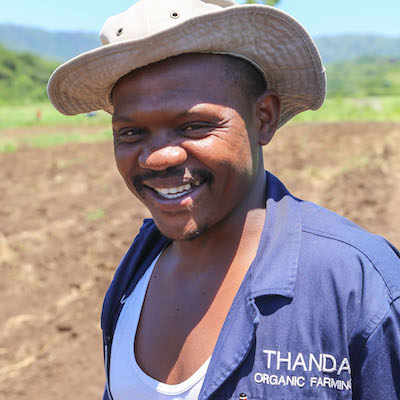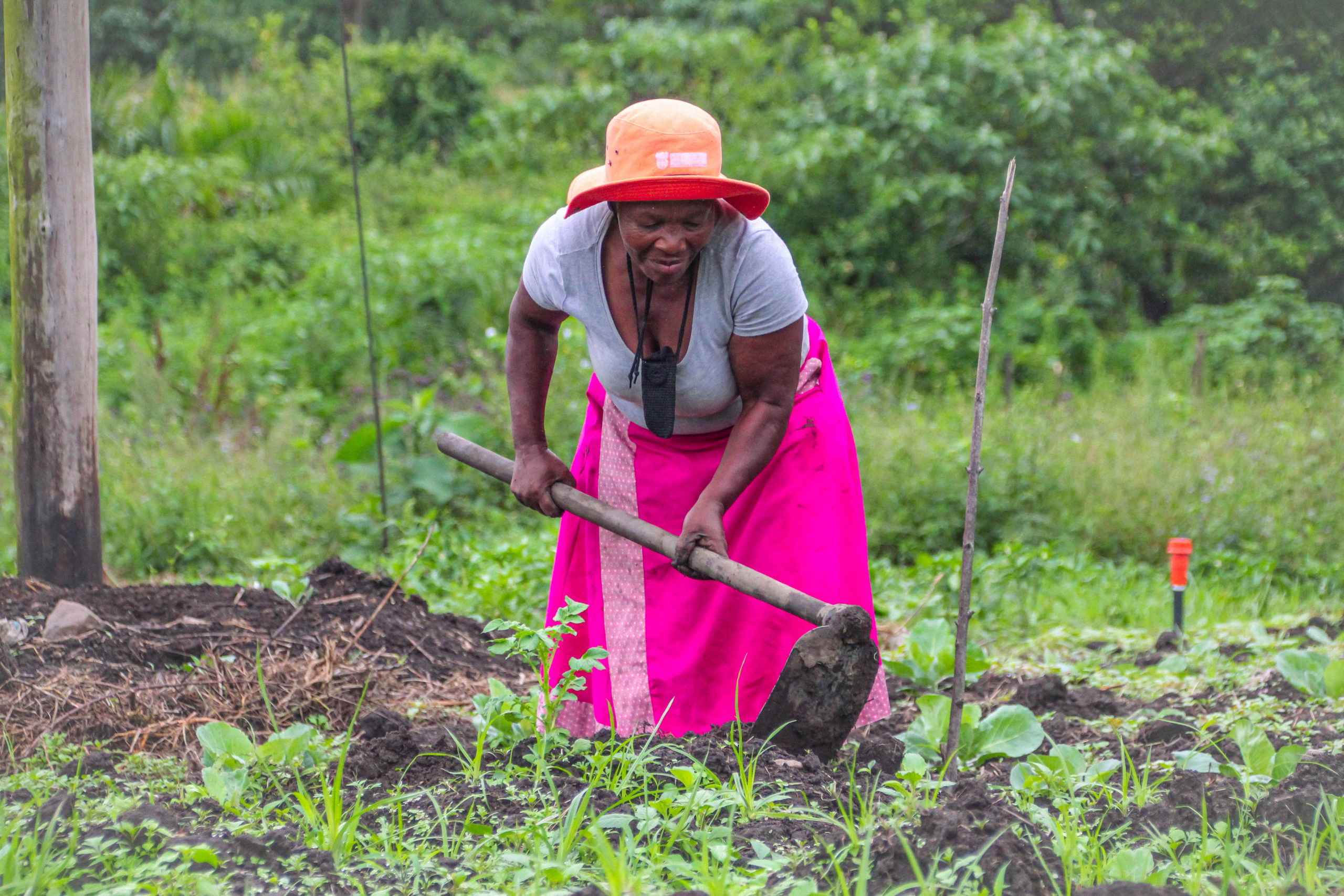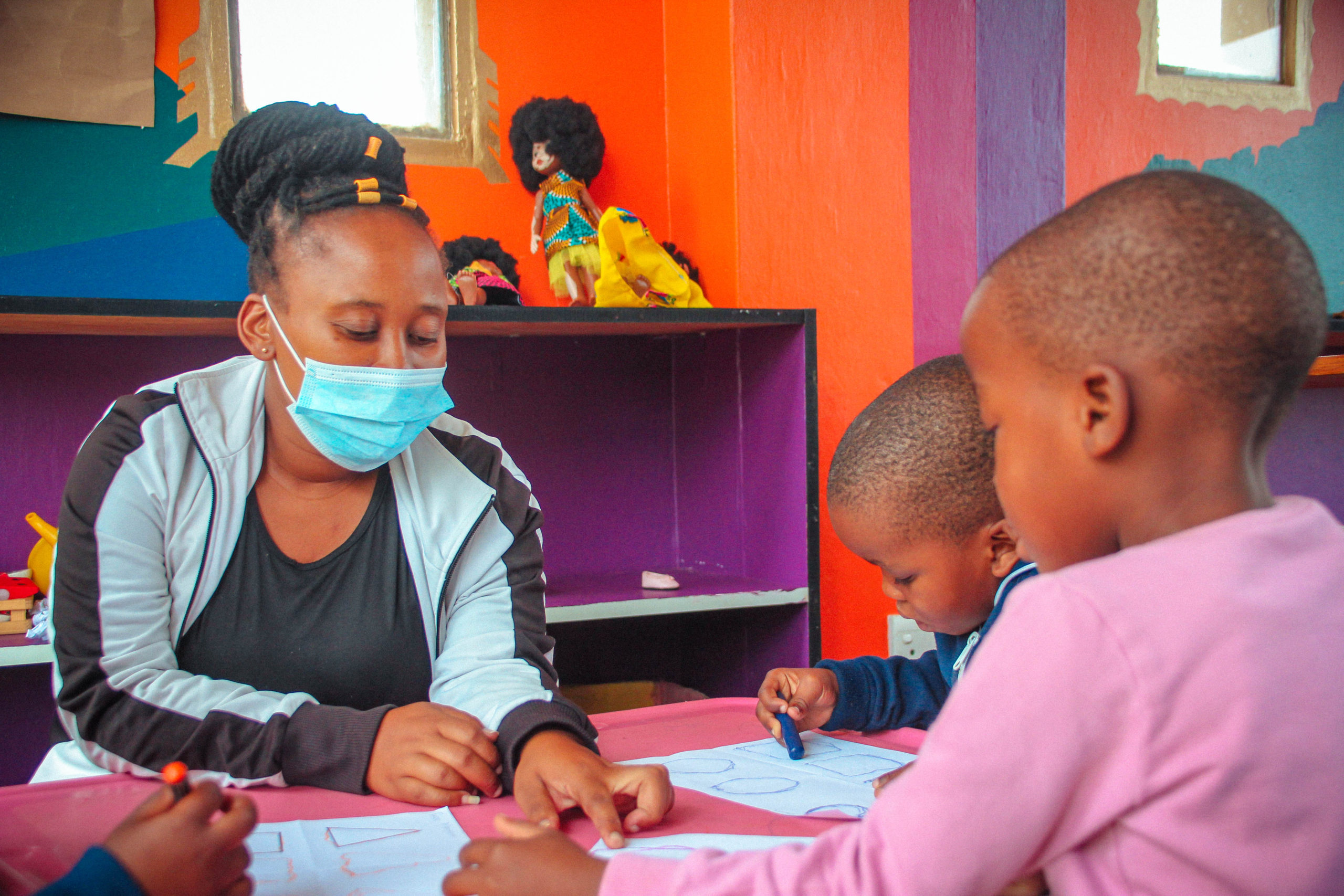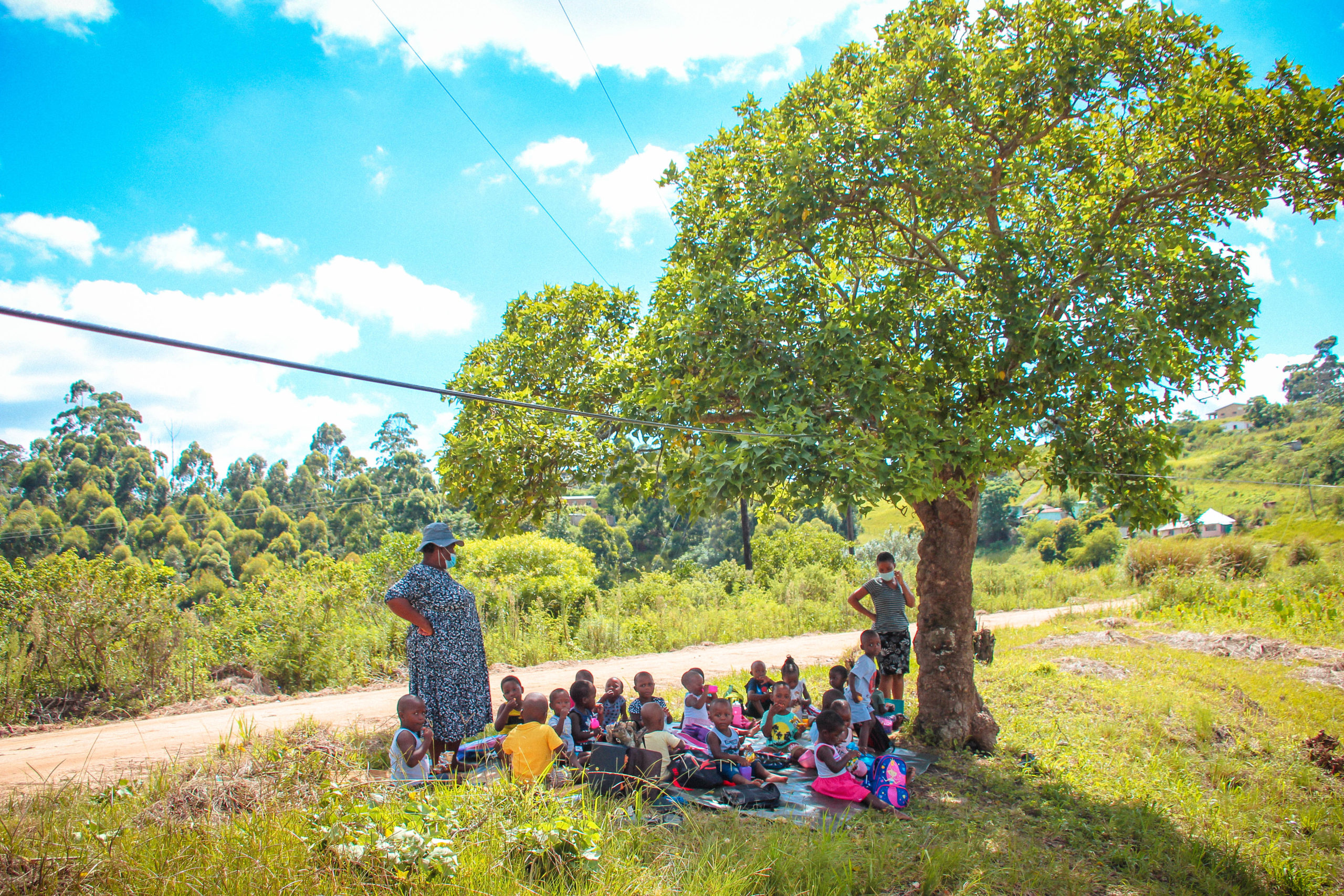This video was filmed by The Perennial Plate in 2015 and documents a day in our Organic Farming Programme with Phakamani, a passionate organic farming mentor who also shares his wise life advise to anyone interested and will always make a group of people laugh.
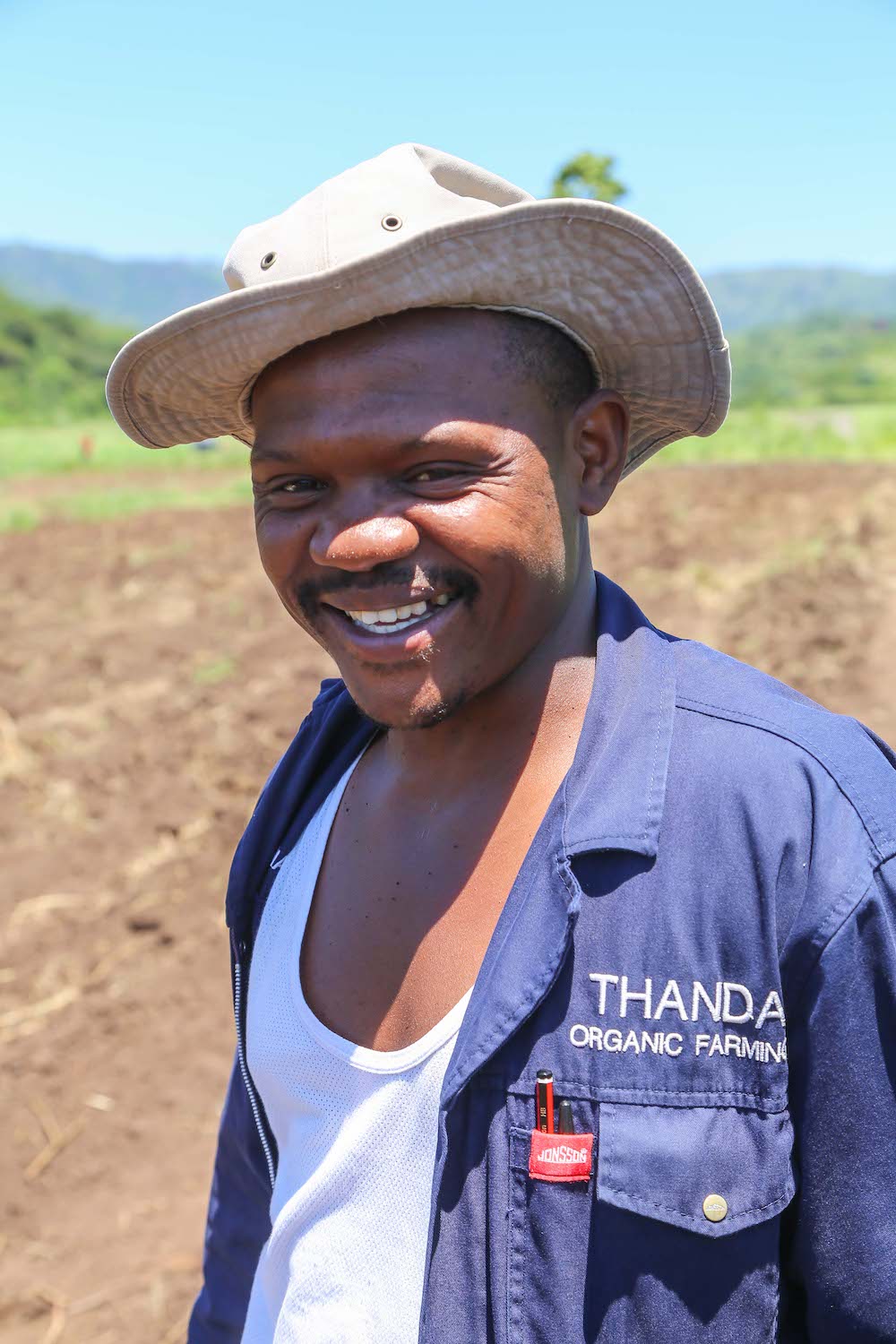
When Phakamani was young planting vegetables was a “game” because there wasn’t time for other activities and his family needed food. In that way, now when Phakamani is farming he feels as if he is time traveling back to a simpler place where people used their hands more often. In the video in 2015 he saw farming as a lost skill in his community, but hoped he could motivate youth and adults to bring it back. Like many other people growing up in rural areas of South Africa, Phakamani went to town (Durban) after matric and could not find work like he had hoped. He came back home to make a living and reignited his passion for farming. In 2015, he was asking his community to “stand up,” which is what Phakamani translates to in english, and improve their community through farming.
And, they have.
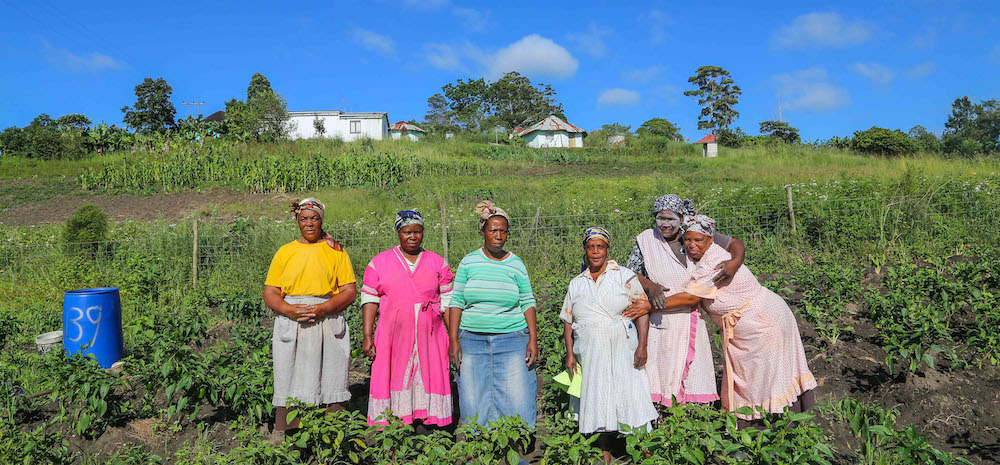
Since 2015 to 2019, the Thanda Organic Farming Programme has grown from 144 farmers on 14 farms to 392 farmers on 23 farms and counting. Farmers have produced over R1.5 million of vegetables in 2018, double the total amount in 2017. Most importantly, every farmer, their families and their neighbours are eating healthy, nutritious foods daily.
Phakamani is happy to witness the community transform and take farming seriously. The programme is innovative and through a conversation with the mentors it is obvious. He explains, “we are teaching new techniques to farmers. We are using manure and compost and sharing with other farms in our programme when one has a very good product.”
At one point, Phakamani left Thanda to partake in large-scale farming as a manager, but only momentarily. The daily use of pesticides and fertilizers wore him down and he described the painful spraying process…”You spray your crops multiple times as the plants are growing. When you are spraying, you can’t touch your face, smoke, or eat and you need to wash yourself off after walking and working for a very long time. I like hard labour, but it started to make me feel bad being around these chemicals all the time just to make a living and I knew there is another way. That’s when I came back to Thanda.”
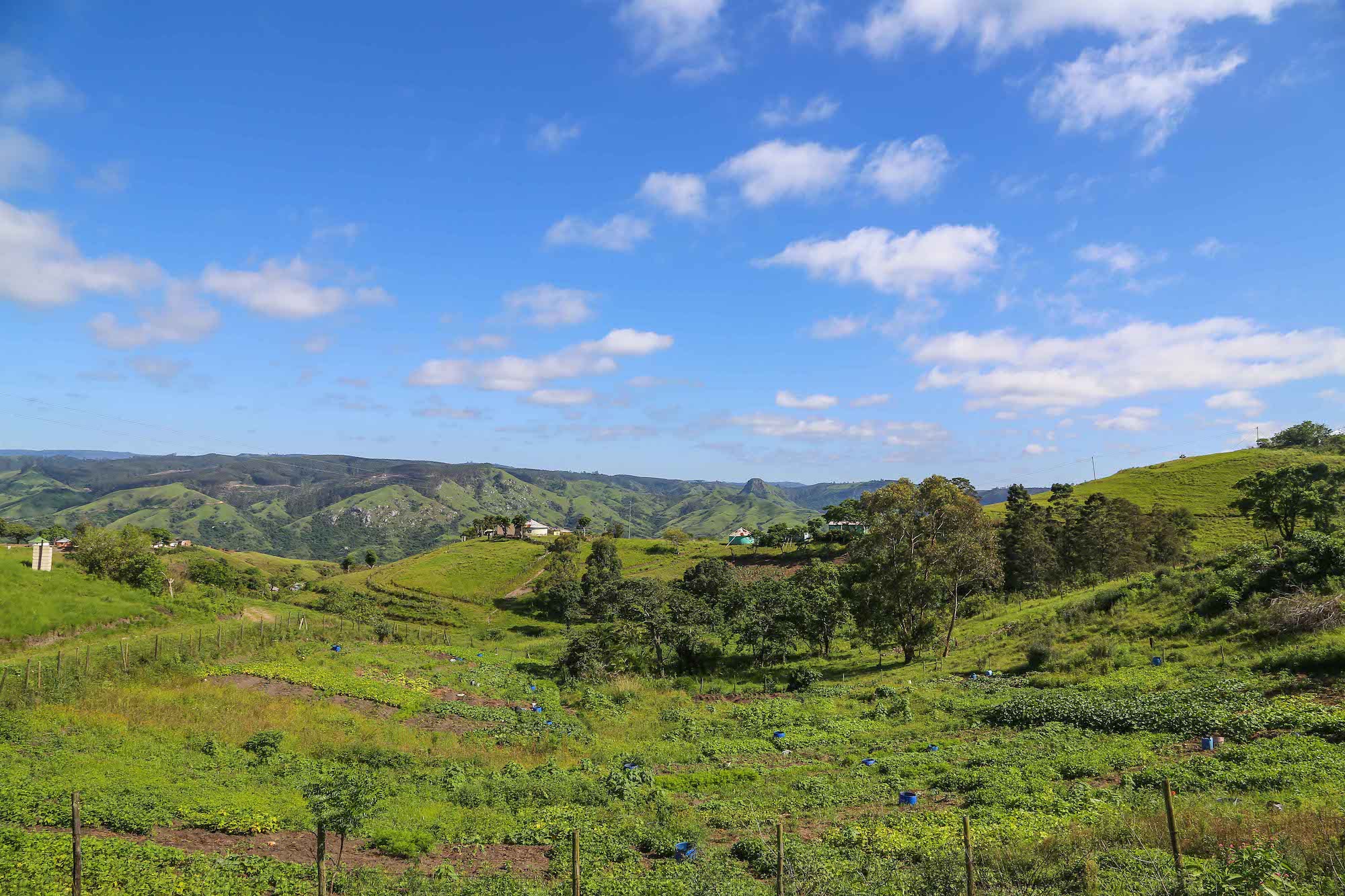
There are many reasons why he loves working with Thanda, but most importantly it he says it has taught him the value of good, healthy food. His parents are older and eating healthy has benefitted their health and extended their lives. One of the toughest times in his life happened while he was gone in the city and both his parents suffered strokes. Now, they are fully healed. In their home, they do not eat oil or salt and eat vegetables with every meal. If they eat meat, Phakamani says they raise it themselves. And, they don’t add sugar, instead they add chilis.
Phakamani feels he belongs to organic farming. It connects him to nature and the environment and makes him a better person. He swore to never use pesticides again when killing a locust left him with a terrible and inexplicable feeling. “I used to use pesticides a lot and would kill insects. Until one morning I woke up after spraying the day before. I went back to my farm and felt strange within myself. I couldn’t identify this feeling. It was like there is something I did that is very wrong and I didn’t understand. I thought, ‘had I wronged another person?’. Then, I saw a dead locust. I wasn’t aware before that these locusts were a part of me. Their jump and movements in my garden were all a part of me and my farming and now I’ve killed them. I felt alone and lonely in this garden. So, I decided, no more killing. I knew my food could survive, too. We used to identify these insects as bad, but nature needs them. The environment needs them. It is a part of the ecosystem and it is good for farming. We need them.”
We agree with Phakamani’s philosophies on farming. Just as we breathe, plants do. Organic farming is alive and there is nothing that connects us more to nature than the fact that every being needs to eat. In farming, we are putting life back into the earth and into the people in our community.
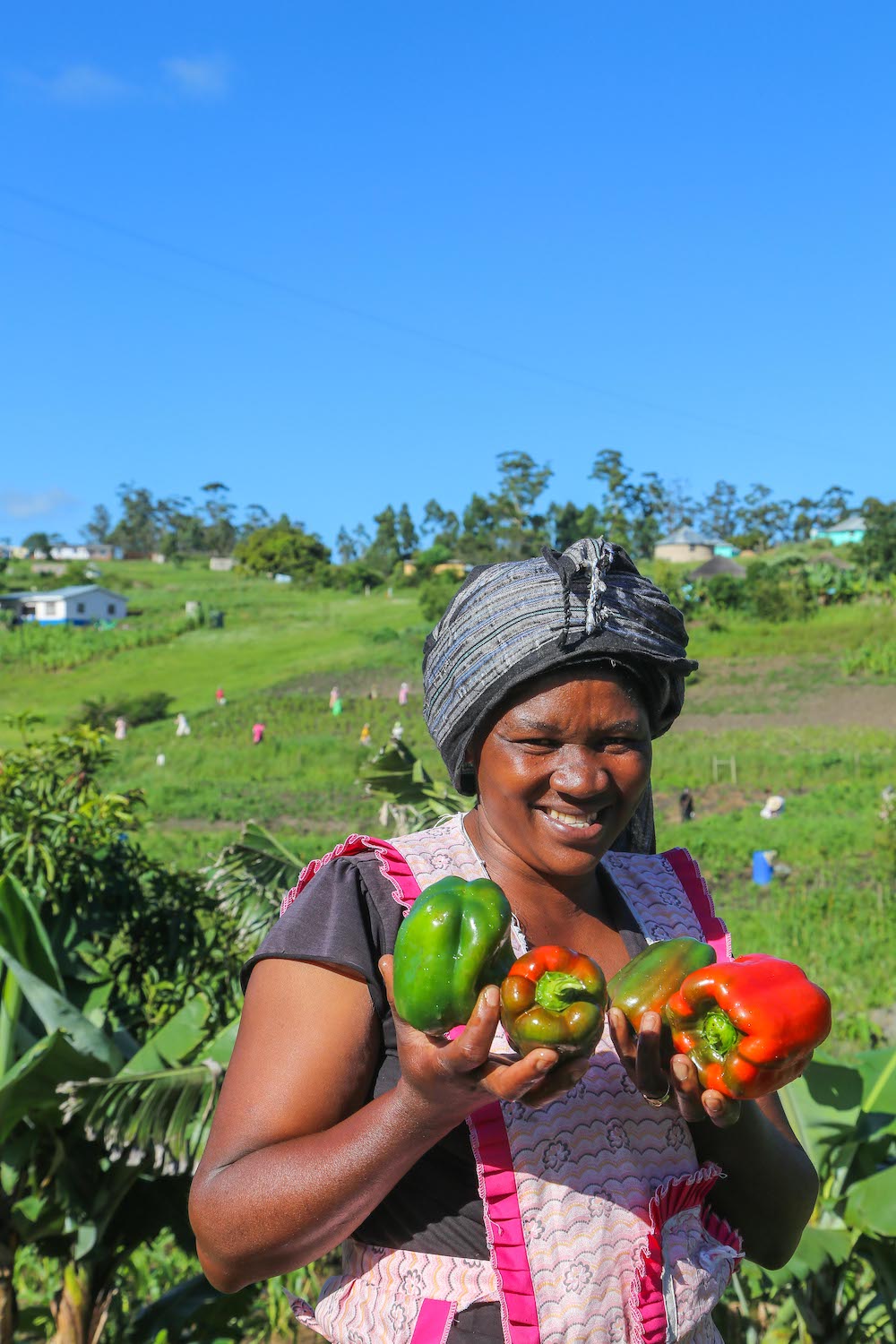
These are Phakamani’s tips to a healthy life:
- Love your environment and take care of it because we need it
- Eat healthy food
- Love your body and your mind
- Love and take care of others (generosity)
- Enjoy life and be happy


